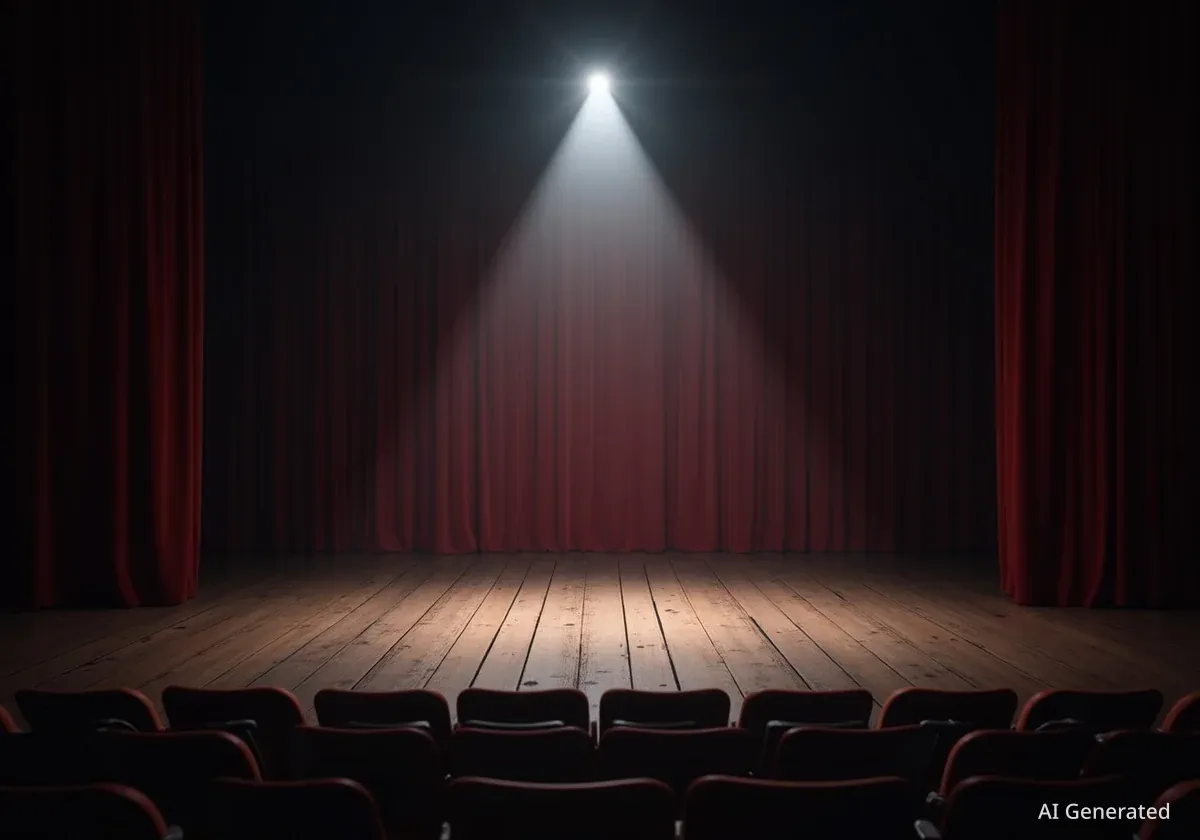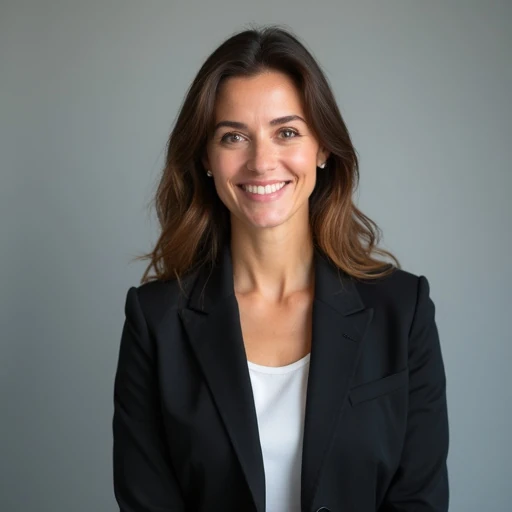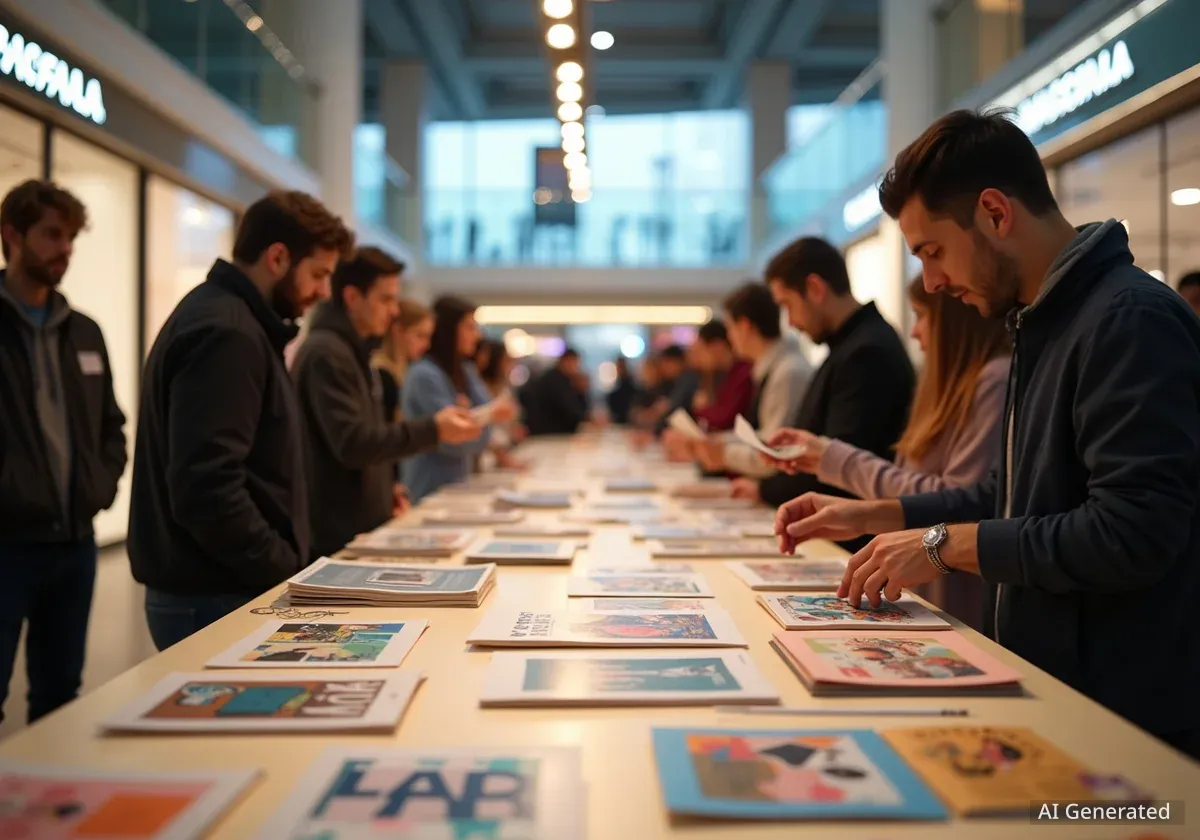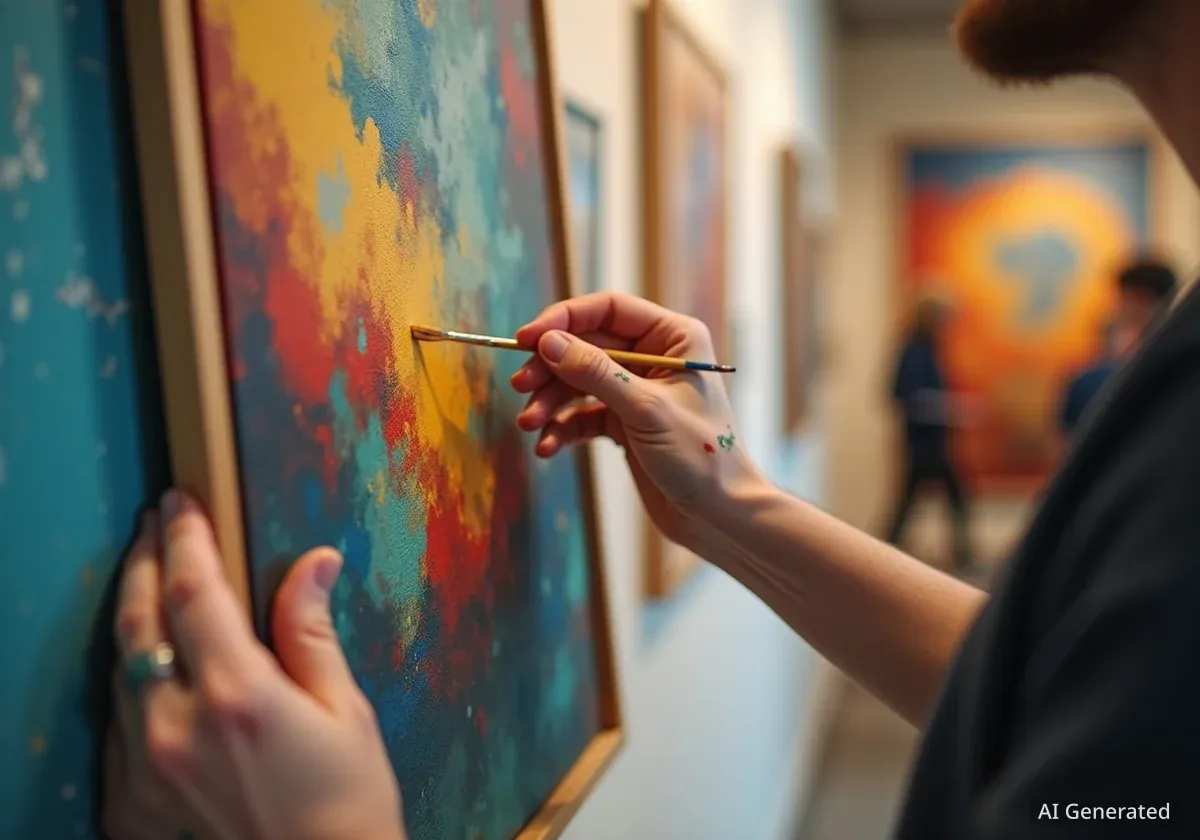Liverpool's Everyman and Playhouse Theatres have served as crucial starting points for numerous acclaimed actors and filmmakers. Since the Everyman's founding in 1964 and the Playhouse's establishment in 1911, these venues have consistently developed talent, helping many local artists achieve national and international recognition. Their youth programs, in particular, have been instrumental in shaping the careers of stars like David Morrissey, Stephen Graham, and Julie Walters.
Key Takeaways
- The Everyman Theatre, founded in 1964, and the Liverpool Playhouse, established in 1911, are renowned for nurturing acting talent.
- Both theatres have strong youth programs that have launched many successful careers.
- Notable alumni include Julie Walters, Stephen Graham, David Morrissey, Ian Hart, Alison Steadman, Bill Nighy, Pete Postlethwaite, Jonathan Pryce, Heidi Thomas, and Cathy Tyson.
- The theatres merged management in 1999 and continue to operate as a single entity, the Liverpool Everyman and Playhouse Theatres.
Everyman Theatre: A Foundation for Success
The Everyman Theatre began its journey in 1964, emerging from Hope Hall, a building that previously served as a chapel and then a cinema. Its founders, Martin Jenkins, Peter James, and Terry Hands, opened the theatre with a simple vision: Liverpool needed a new and innovative theatrical space. They lacked a formal business plan or detailed marketing strategy, but their belief in the city's artistic needs proved foundational.
Over the decades, the Everyman has hosted a series of influential directors, writers, and acting companies. It became a vital platform for showcasing talent from Liverpool and beyond. The theatre's commitment to nurturing young performers was evident early on.
Fact: Everyman Youth Theatre
The original Everyman Youth Theatre operated from the 1970s until 1993. At its peak, it boasted over 300 members, demonstrating its significant impact on young aspiring artists in the region.
Following a period of liquidation in the 1990s, a 'new' Everyman Youth Theatre was established. This evolved into the Everyman and Playhouse Youth Theatre in 2006, eventually rebranding as Young Everyman Playhouse (YEP) in 2012. YEP continues to support young individuals not only in acting but also in directing, marketing, producing, technical roles, and writing, fostering a comprehensive development environment for future theatre professionals.
The Liverpool Playhouse: A Century of Talent Development
Located in Williamson Square, the Liverpool Playhouse has an even longer history, established as a repertory theatre in 1911. Like the Everyman, it has played a significant role in developing the careers of numerous young actors and actresses. Its sustained commitment to repertory theatre provided consistent opportunities for performers to hone their craft.
In 1999, the management of the Playhouse merged with the Everyman Theatre. This created a unified structure, and today, both venues are managed by the same company, known as the Liverpool Everyman and Playhouse Theatres. This merger solidified their combined impact on the performing arts landscape in Liverpool.
Shared Legacy
The collaboration between the Everyman and Playhouse has created a robust ecosystem for talent development. This integrated approach allows for shared resources and a broader reach in fostering new artists, ensuring the region remains a hub for theatrical innovation.
Stars Who Began Their Journey
Many individuals who started their careers at these Liverpool theatres have gone on to achieve significant fame in film and television. Their early experiences at the Everyman and Playhouse provided a strong foundation for their later success.
David Morrissey: From Youth Theatre to Hollywood
Actor and filmmaker David Morrissey began his performing arts journey through the Liverpool Everyman and Playhouse Youth Theatre. He joined the Everyman Youth Theatre while attending De La Salle school. His first stage appearance was in a play about the Toxteth riots. During his time at the Everyman, he formed friendships with the McGann brothers and Ian Hart. He also served on the theatre's board.
Morrissey's breakthrough came at 19 when he took the lead role in Channel 4's first drama series, Willy Russell's One Summer. He later trained at the Royal Academy of Dramatic Art (RADA) and performed with the Royal Shakespeare Company (RSC) and the National Theatre. His career includes roles in Hollywood films such as Captain Corelli's Mandolin and The Other Boleyn Girl. He has also been a familiar face on television, playing Gordon Brown in Stephen Frears' The Deal, appearing in The Hollow Crown, and gaining international recognition in The Walking Dead. Recently, he earned praise for his role in the BBC drama Sherwood, a series centered on a manhunt in a fractured former mining village.
Stephen Graham: Kirkby's Acclaimed Actor
Stephen Graham, born in Kirkby, started his acting career at Liverpool's Everyman Theatre, participating in its youth program. He has since worked with acclaimed directors including Martin Scorsese, Guy Ritchie, Michael Mann, and Shane Meadows. Graham has established himself as a prominent figure in showbiz, acting alongside A-list stars such as Robert De Niro, Al Pacino, Leonardo DiCaprio, and Tom Hanks.
"Drew lived across the road from my nana’s house. He was massive in Scully when he came to watch my first school play — Treasure Island. I was Jim Hawkins. He said to my mum and dad, ‘Your Stephen’s got some talent,’ and he introduced me to the Everyman Theatre. That was when my love affair truly began.”
In 2021, he received a BAFTA nomination for his role in Channel 4's pandemic drama Help, which also featured Liverpool's Jodie Comer. Graham has consistently credited the Everyman for initiating his "love affair" with acting. His recent success includes Netflix's four-part series Adolescence, which he co-created. The series, filmed in one continuous shot, quickly rose to the top of the streaming platform's charts.
Heidi Thomas: From Liverpool Stage to Call the Midwife
Screenwriter Heidi Thomas, born in Garston in 1962, studied English at the University of Liverpool. During her university years, she won the John Whitling Award for her play Shamrocks and Crocodiles. Her play Indigo was later performed by the Royal Shakespeare Company (RSC).
Thomas served as a Writer in Residence at the Liverpool Playhouse from 1986-87, where Shamrocks and Crocodiles was performed in 1987. After achieving further stage success, she transitioned to screenwriting, creating many adaptations for the BBC, including Madame Bovary, Cranford, and a reboot of Upstairs, Downstairs. She is most widely recognized as the writer and co-producer of the popular series Call the Midwife.
Did You Know?
Heidi Thomas's play Shamrocks and Crocodiles was first performed at the Liverpool Playhouse in 1987, showcasing her early talent for dramatic storytelling.
Ian Hart: Versatile Performer
Ian Hart, known for his roles as Professor Quirrell and Lord Voldemort in Harry Potter and the Philosopher's Stone, started acting at the Everyman Youth Theatre while attending Cardinal Heenan High School. Born in Knotty Ash in 1964, Hart later studied video production at South Mersey College.
He was prominent in theatre during the 1980s, touring with the Playhouse's production of Jim Morris's play Pinnocchio Boys and starring in Willy Russell's Stags and Hens. Hart gained cinematic recognition for his portrayal of John Lennon in the 1991 film The Hours and Times. He has since collaborated with notable figures like Ken Loach, Kate Winslet, and Steve Coogan. Most recently, he appeared opposite Martin Freeman in the Liverpool-set BBC drama The Responder as Carl Sweeney.
Alison Steadman: Early Everyman Experiences
Alison Steadman, celebrated for her role as Pam in Gavin and Stacey, has often spoken about her early acting career in Liverpool. She credits the Everyman Theatre with playing a significant part in her development. Steadman featured in a 2024 BBC program titled Alison Steadman “we were part of Liverpool”, which explored her early days at the Everyman. She also participated in a 2015 documentary celebrating the theatre's legacy.
In the 1970s, while at the Everyman, she starred in its production of The Foursome, alongside Jonathan Pryce. This experience provided her with crucial stability and confidence. Her breakout role was as Beverley in the stage and TV play Abigail's Party. She has also appeared in the comedy Fat Friends and portrayed Mrs. Bennet in the BBC adaptation of Pride and Prejudice.
Impact on Confidence
Steadman's early work at the Everyman Theatre was pivotal. It gave her the platform and support needed to build her skills and self-assurance, which were essential for her subsequent successful career in the industry.
Julie Walters: A Stepping Stone to Stardom
Actress Julie Walters joined the Liverpool Everyman Theatre's resident acting company in 1974. This was a significant step in her career, allowing her to meet playwright Willy Russell and perform alongside future stars like Bill Nighy and Pete Postlethwaite.
Walters achieved widespread fame in 1983 with the film Educating Rita, starring opposite Michael Caine. She had previously performed the role in the West End production on which the film was based. Her extensive film and TV credits include Mamma Mia! and its sequel, Paddington, the Harry Potter series, and Billy Elliot. She is also known for her extensive collaborations with comedian Victoria Wood. Walters has received numerous accolades, including four British Academy Television Awards, two British Academy Film Awards, two International Emmy Awards, a Golden Globe Award, and an Olivier Award.
Cathy Tyson: From Youth Theatre to Golden Globe Nomination
Cathy Tyson received her training at Liverpool's Everyman Youth Theatre before joining the Royal Shakespeare Company (RSC). Her film debut came in Mona Lisa (1986) opposite Bob Hoskins, a performance that earned her a Golden Globe nomination and a BAFTA. Tyson has spoken fondly of her time at the Everyman on her website.
"I also attended The Everyman Youth Theatre in Liverpool’s Hope street. There, the great Roger Hill encouraged us to aim high. He looked me in the eye and told me I was going to be a success. Nobody had ever said that before. I attended four nights a week and the doors were open to everybody. There weren't any auditions. So we had the feeling that theatre was ours too. We all had a stake in it. There was a lot of improvising."
She has returned to the Everyman stage multiple times, including for the 2007 production of The May Queen and the 2013 show Monkey Bars. More recently, she appeared in the 2023 BBC drama Boiling Point, created by Stephen Graham, and currently stars as Dorris Mattis in the Apple TV thriller series Criminal Record, alongside Peter Capaldi.
Bill Nighy: A Core Part of His Life
After training at the Guildford School of Acting, Bill Nighy began his theatre career by joining the Liverpool Everyman Theatre's repertory company in 1974. He was part of a notable group of actors from that era, performing alongside Julie Walters, Jonathan Pryce, and Pete Postlethwaite. Nighy starred in several productions, including The Taming of the Shrew in 1974 and Funny Peculiar in 1975.
His time at the Everyman was a core part of his life. He has since returned to support the theatre's "Everyone Starts Somewhere" 60th-anniversary campaign. Now 75, Nighy has had a long and successful career, taking on iconic roles such as Billy Mack in the 2003 Christmas hit Love Actually and Davy Jones in Pirates of the Caribbean (2006). He has received numerous awards, including a BAFTA and a Golden Globe.
Award-Winning Career
Bill Nighy's career spans decades, earning him a BAFTA and a Golden Globe Award for his contributions to film and television.
Pete Postlethwaite: Spielberg's "Best Actor in the World"
Warrington-born Hollywood star Pete Postlethwaite began his theatre career in the early 1970s, a period often described as a golden era at the Liverpool Everyman Theatre. He developed a strong passion for acting at the Everyman, which propelled him to significant achievements in the industry. Postlethwaite was appointed an OBE in the 2004 New Year’s Honours List.
He was famously described as "the best actor in the world" by Steven Spielberg, with whom he collaborated on films like The Lost World: Jurassic Park and Amistad. In 2008, he starred in a revival of King Lear as part of Liverpool's European Capital of Culture celebrations. His final big-screen appearances were in 2010, in Inception alongside Leonardo DiCaprio, and in Ben Affleck’s The Town. Postlethwaite passed away in 2013 at the age of 64.
Sir Jonathan Pryce: From Teen Visitor to Artistic Director
After graduating from the Royal Academy of Dramatic Arts (RADA), Jonathan Pryce launched his acting career at the Liverpool Everyman Theatre, joining the iconic 1974 company. He was part of the "golden era" alongside Julie Walters and Bill Nighy. Pryce later became the theatre's artistic director.
He has received numerous awards, including two Tony Awards and two Laurence Olivier Awards. His stage work includes Miss Saigon and Comedians, while his film roles feature in Brazil, Evita, and the Pirates of the Caribbean series. On television, he played High Sparrow in Game of Thrones and Cardinal Wolsey in Wolf Hall. Pryce returned to the Everyman in 2009 for the first time since the early 1970s, in a production of Harold Pinter's The Caretaker.
A Personal Connection
According to The Guardian, Pryce used to visit the Everyman before it was even a theatre, as part of his Saturday ritual as a teenager. He recalled in a 2009 interview: "Take the ferry from Birkenhead, lunch at Lewis's, then the teatime session at the Cavern before going on to Hope Hall [then a concert hall, now the Everyman] which stayed open late. I just missed the Beatles. But I did see Sonny Boy Williamson and the Swinging Blue Jeans."
Pryce studied teacher training at Edge Hill College in the 1960s but was drawn back to the Everyman, stating, "It was the kind of theatre which spoke my language." This deep connection highlights the theatre's enduring appeal and impact on his career.
Conclusion
The Liverpool Everyman and Playhouse Theatres continue to be vital institutions in the performing arts. Their rich history of discovering and developing talent has left an indelible mark on the industry. From humble beginnings, these venues have consistently provided a nurturing environment, allowing countless individuals to achieve their artistic potential and become household names.





